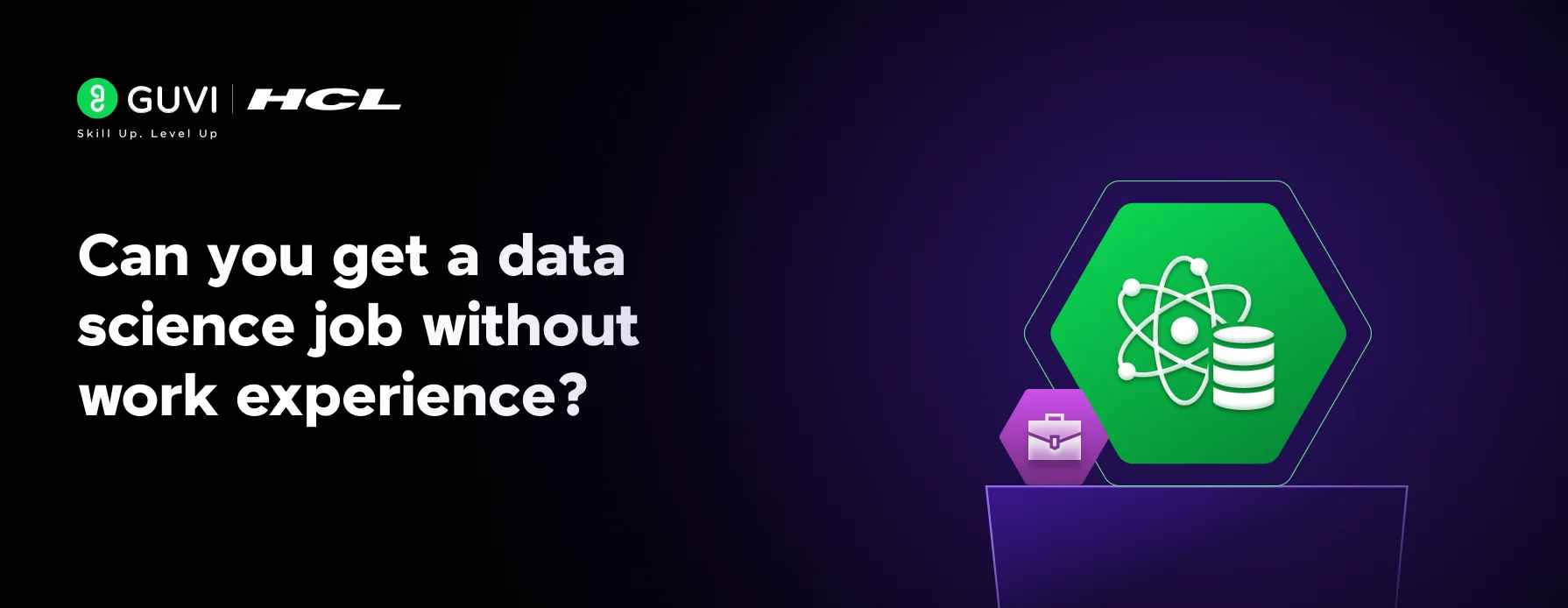
Can you get a data science job without work experience?
Jan 06, 2026 5 Min Read 4788 Views
(Last Updated)
Wondering if you can get a data science job without any work experience? Yes, you can. This blog has the key that lets you unlock doors to endless opportunities even if you don’t have enough work experience in data science.
Though experience is one of the most important factors in any field, it is not always mandatory. Sometimes with the right roadmap and with a clear career path, you can shine without much experience. This is true, especially in the field of data science!
This blog contains information about the learning journey you need to embark on to become a data scientist. This is your perfect resource for going about the ways that can lead to landing a data science job without work experience.
Table of contents
- Who is a Data Scientist and What Do They Do?
- Key Responsibilities of a Data Scientist:
- Is it even possible to become a data scientist with no experience?
- Can You Land a Data Science Job with No Work Experience? Absolutely! Here’s How
- Build a Strong Educational Foundation
- Gain Practical Experience Through Projects
- Build a Standout Portfolio
- Get an Internship or Volunteer for Data-Driven Roles
- Network with Industry Professionals
- Craft a Resume That Highlights Your Skills
- Prepare for Interviews Like a Pro
- Keep Learning & Stay Up-to-Date
- Conclusion
- FAQs
- Can I become a data scientist without prior work experience?
- What skills are essential for an aspiring data scientist?
- How can I gain practical experience without a job in data science?
- Is networking important in securing a data science position?
- Should I consider internships or volunteer roles to start my data science career?
Who is a Data Scientist and What Do They Do?
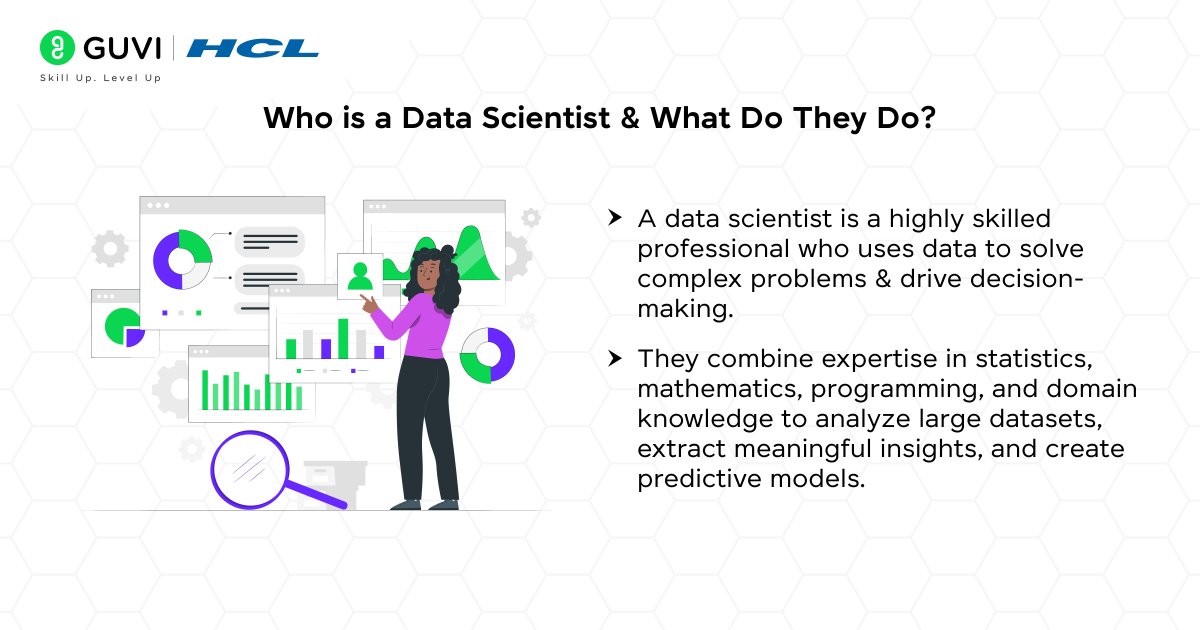
A data scientist is a highly skilled professional who uses data to solve complex problems and drive decision-making. They combine expertise in statistics, mathematics, programming, and domain knowledge to analyze large datasets, extract meaningful insights, and create predictive models.
Key Responsibilities of a Data Scientist:
- Data Collection & Processing – Gathering structured and unstructured data from multiple sources and cleaning it for analysis.
- Exploratory Data Analysis (EDA) – Identifying patterns, trends, and correlations within data.
- Machine Learning & AI – Developing algorithms and predictive models to forecast outcomes.
- Data Visualization & Reporting – Presenting findings through dashboards and reports for easy understanding.
- Business & Strategy Insights – Helping organizations make informed decisions based on data-driven insights.
Data scientists work across various industries, including healthcare, finance, retail, marketing, and technology, making them essential in today’s data-driven world. Their role is a blend of problem-solving, critical thinking, and technical expertise, making them one of the most in-demand professionals globally.
Is it even possible to become a data scientist with no experience?
To answer simply, yes! It is absolutely possible to become a data scientist, even if you are just starting out and don’t have any industry experience. The question should be how is that so?
One of the most important factors that make the data science job market relatively accessible for newcomers is the significant and rapid growth of new data and the scientists needed to work with it. In short, the data industry is booming.
In 2019, the global data science market was valued at $49 billion USD, more than double its worth in 2015. And, from 2022 to 2024, the market is projected to grow at a rate of about 30% each year.
And this constantly expanding data market means a wealth of job opportunities for data science professionals and currently, the demand is far outweighed by the supply.
As per Glassdoor, data scientist salaries in India range from Rs. 4L to Rs. 24L/annum with an average of Rs. 10L/annum.
Data-driven companies need to consistently outperform their competitors, and that means hiring data experts will be an increasing priority across all industries.
In short: Data scientists are in high demand, thus placing newcomers in a great position. The jobs are available and as long as you have mastered and can demonstrate the relevant skills, there’s nothing to stop you from getting a foot in the door.
Can You Land a Data Science Job with No Work Experience? Absolutely! Here’s How

Breaking into the data science field without prior work experience might seem daunting, but it’s entirely possible. With the right strategy, skills, and mindset, you can position yourself as a strong candidate and land a job in this exciting field.
If you’re wondering where to start, this article will walk you through the steps you need to take, from learning the fundamentals to showcasing your skills effectively.
1. Build a Strong Educational Foundation
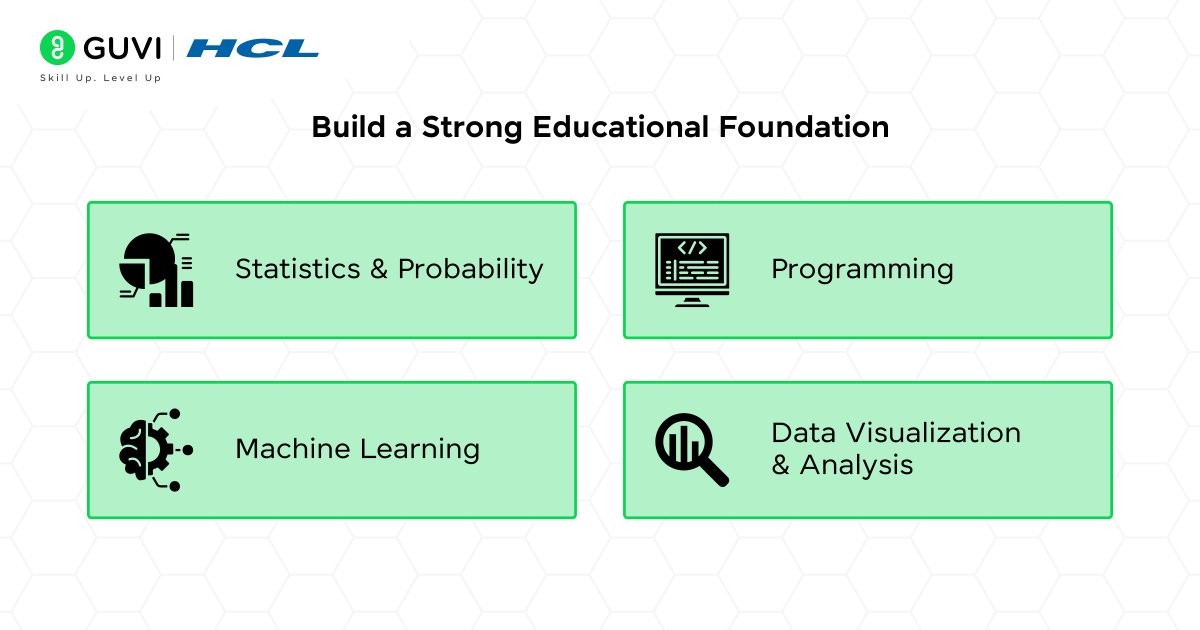
Before applying for data science jobs, you need to develop a solid understanding of key concepts like:
- Statistics and Probability: These are the backbone of data science.
- Programming: Python and R are widely used in the industry.
- Machine Learning: Understanding algorithms, model evaluation, and optimization is crucial.
- Data Visualization and Analysis: Tools like Tableau, Power BI, and Matplotlib help in presenting insights.
While having a degree in data science, computer science, or a related field can be beneficial, it’s not mandatory. Many successful data scientists are self-taught or have transitioned from other backgrounds.
2. Gain Practical Experience Through Projects
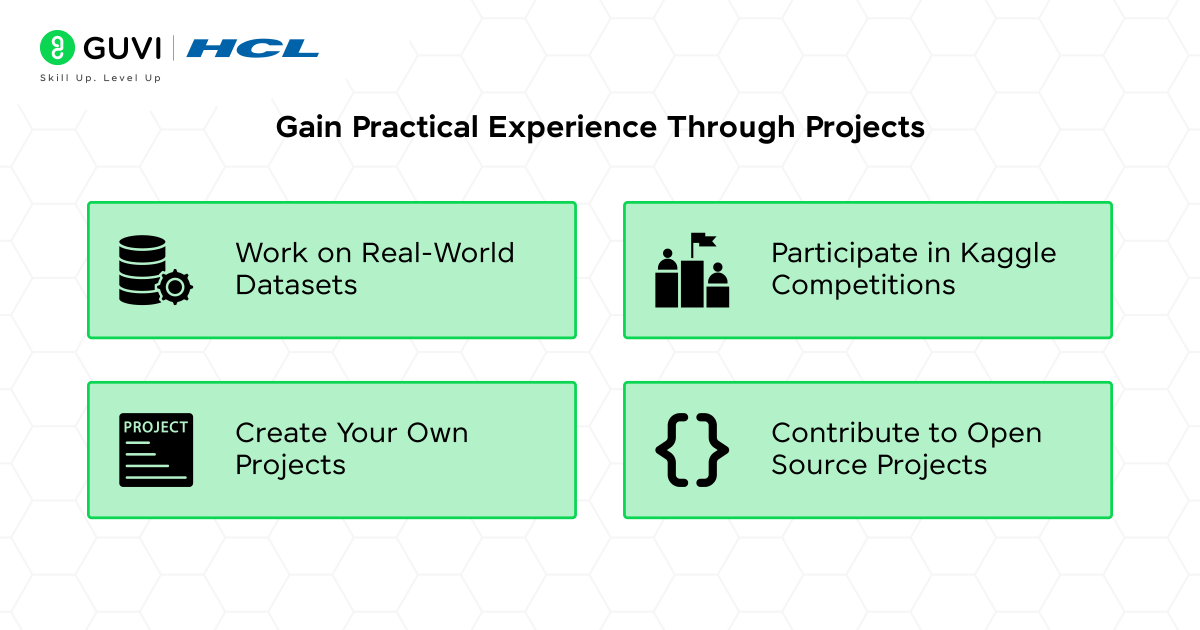
Employers value practical experience more than just theoretical knowledge. Since you don’t have formal work experience yet, working on projects is a great way to demonstrate your skills.
Here’s how you can gain hands-on experience:
- Work on Real-World Datasets: Websites like Kaggle and UCI Machine Learning Repository offer datasets for practice.
- Participate in Kaggle Competitions: These challenges give you the opportunity to solve real-world problems and learn from experts.
- Create Your Own Projects: Identify a problem in your domain of interest, collect data, and analyze it to draw meaningful insights.
- Contribute to Open Source Projects: Collaborating on GitHub repositories can showcase your ability to work in a team and solve problems efficiently.
Your projects should not only be technically sound but also well-documented and presented. Make sure you explain your methodology, tools used, and key takeaways from the analysis.
3. Build a Standout Portfolio
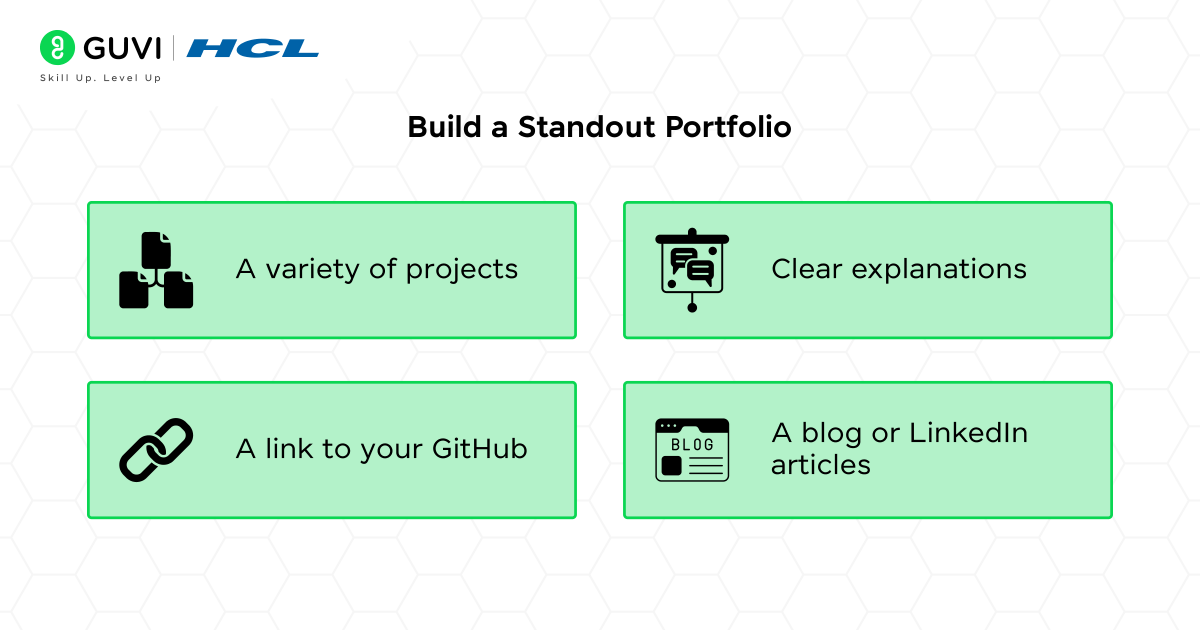
A well-crafted portfolio can be your biggest asset when applying for data science roles. Since you don’t have work experience to show, your portfolio acts as proof of your skills.
A strong portfolio should include:
- A variety of projects (Machine Learning models, Data Visualization dashboards, NLP applications, etc.)
- Clear explanations of problem statements, methodologies, and results.
- A link to your GitHub where employers can review your cod.
- A blog or LinkedIn articles where you explain data science concepts in simple terms (optional, but beneficial).
A structured and engaging portfolio makes a great impression on hiring managers and helps you stand out from the competition.
4. Get an Internship or Volunteer for Data-Driven Roles
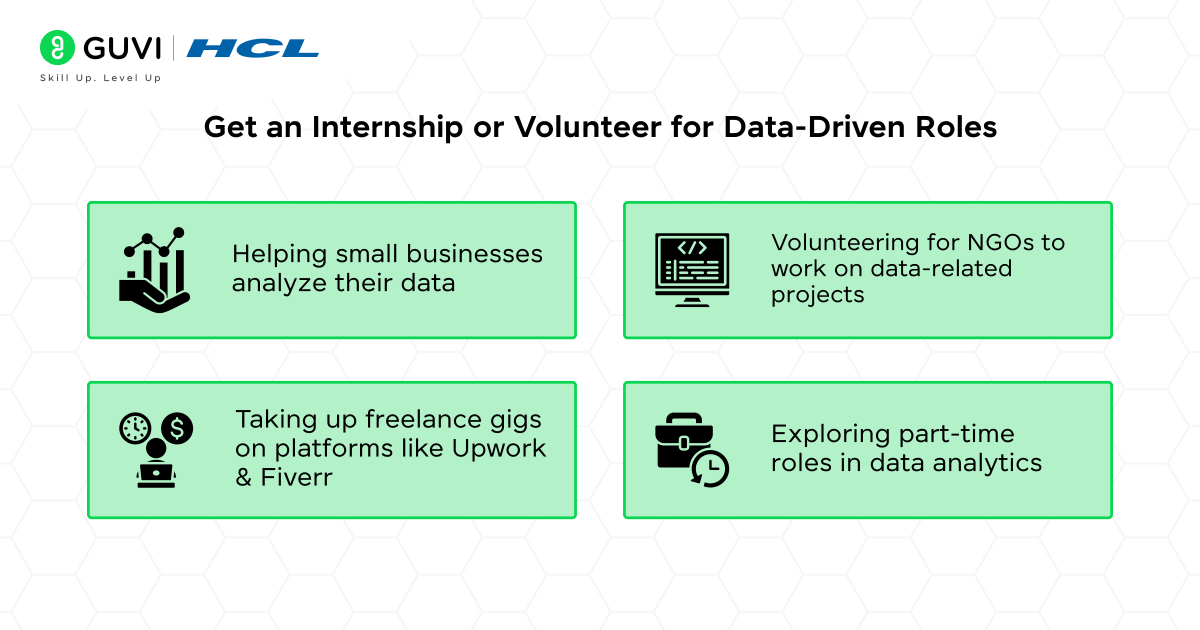
Internships and volunteer work provide an excellent way to gain industry exposure. Even if you can’t land a formal data science internship right away, you can still gain experience by:
- Helping small businesses analyze their data
- Volunteering for NGOs to work on data-related projects
- Taking up freelance gigs on platforms like Upwork and Fiverr
- Exploring part-time roles in data analytics
These experiences not only enhance your skills but also provide references and networking opportunities that could lead to a full-time role.
5. Network with Industry Professionals
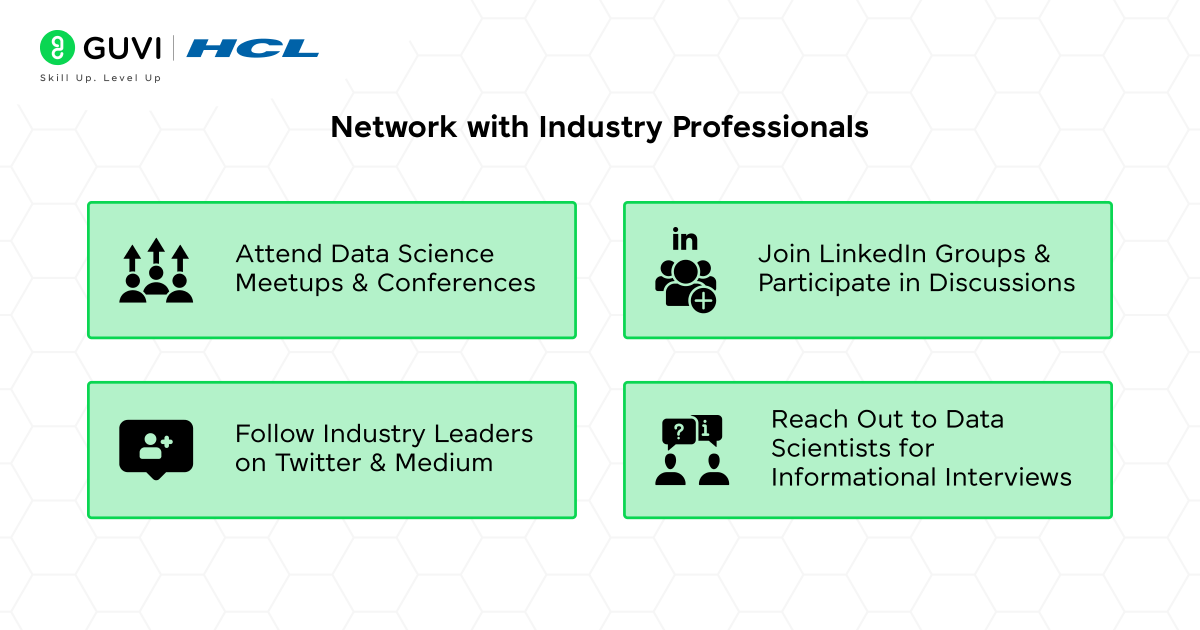
Networking is one of the most underrated ways to break into data science. Many job opportunities are never posted publicly but are filled through referrals.
Here’s how you can start networking:
- Attend Data Science Meetups & Conferences: Engage with professionals and recruiters.
- Join LinkedIn Groups & Participate in Discussions: Share insights and contribute valuable input.
- Follow Industry Leaders on Twitter & Medium: Stay updated with trends and new tools.
- Reach Out to Data Scientists for Informational Interviews: Ask them about their journey and for advice on entering the field.
A well-maintained LinkedIn profile, along with active participation in discussions, can put you on the radar of recruiters and hiring managers.
6. Craft a Resume That Highlights Your Skills
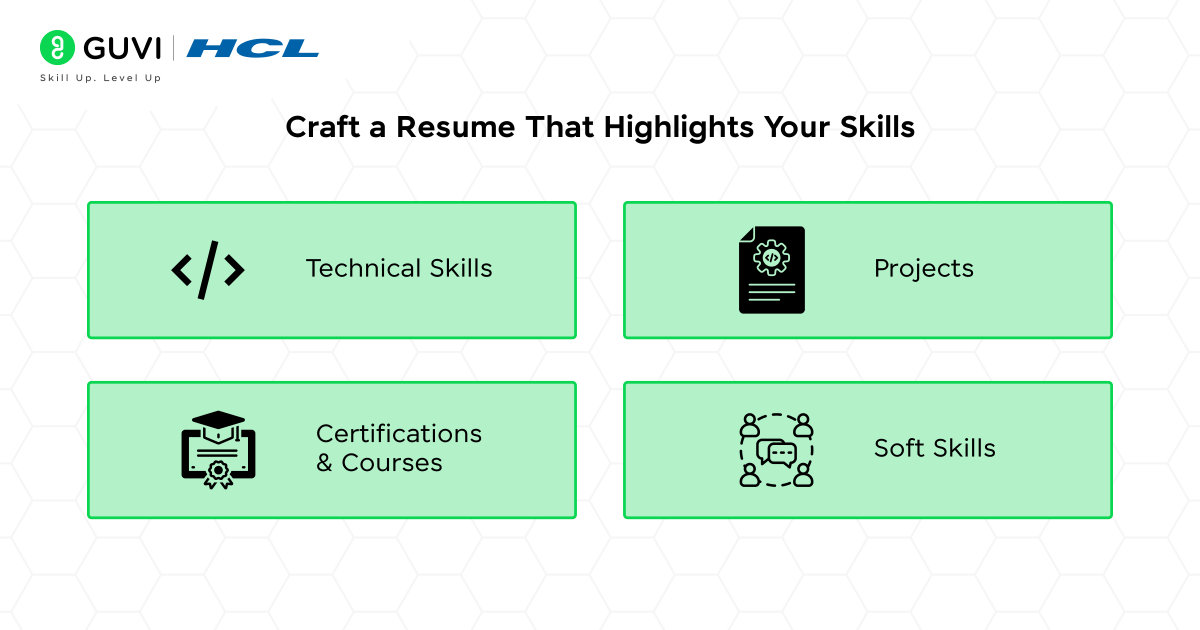
When applying for data science jobs, your resume should be tailored to highlight your skills and projects rather than your lack of work experience.
Make sure your resume includes:
- Technical Skills: Programming, Data Visualization, Machine Learning, etc.
- Projects: Highlight relevant projects with a brief summary and impact.
- Certifications & Courses: Mention relevant online courses and boot camps.
- Soft Skills: Communication, Problem-Solving, and Teamwork.
A well-structured, concise, and error-free resume increases your chances of getting an interview.
7. Prepare for Interviews Like a Pro
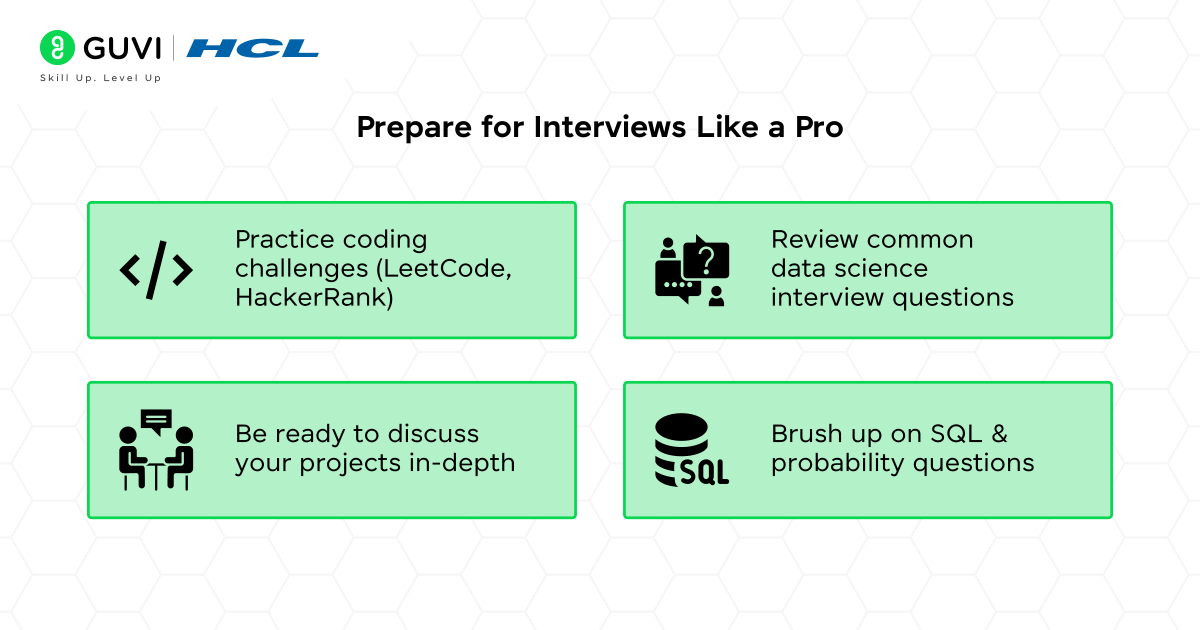
Landing an interview is only half the battle. To ace it, you need to:
- Practice coding challenges (LeetCode, HackerRank)
- Review common data science interview questions
- Be ready to discuss your projects in-depth
- Brush up on SQL and probability questions
Interviewers often test your problem-solving skills, ability to work with data, and communication abilities, so be well-prepared to explain complex concepts in a clear and concise manner.
8. Keep Learning & Stay Up-to-Date
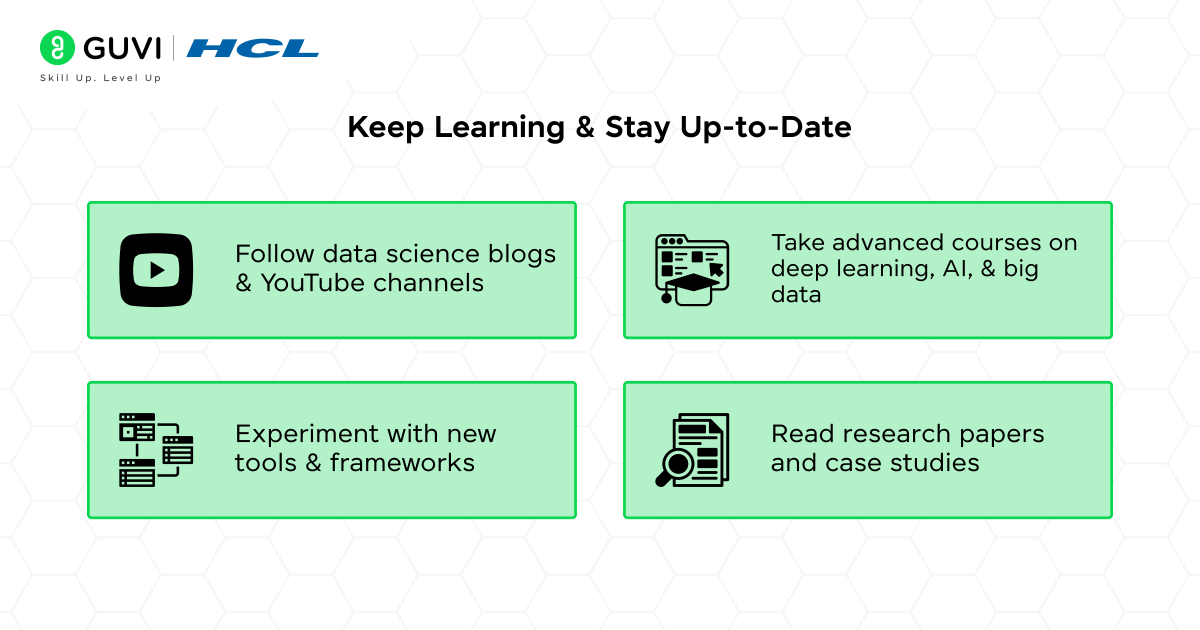
The field of data science is constantly evolving. To stay relevant, make continuous learning a habit.
- Follow data science blogs and YouTube channels
- Take advanced courses on deep learning, AI, and big data
- Experiment with new tools and frameworks
- Read research papers and case studies
Employers value candidates who are passionate about learning and growing in the field.
If you want to learn more about data science and want to become one, consider enrolling in HCL GUVI’s Data Science Course where you will master technologies like MongoDB, Tableau, PowerBi, Pandas, etc., and build interesting real-life projects along with industry-grade certificates.
Conclusion
In conclusion, the data market is constantly growing, and so is the demand for skilled data scientists. As a rookie in the industry, you have plenty of value to offer and that is not just despite your lack of experience, but in various ways, because of it.
So, to the question, can you get a data science job without experience? The answer remains yes, you absolutely can! The key is to demonstrate your skills through projects, build a strong portfolio, network with professionals, and keep improving your knowledge.
While the journey may require effort and patience, the opportunities in data science are vast, and companies are always looking for skilled individuals who can add value. If you follow these steps consistently, you’ll be well on your way to securing a data science job—even without prior work experience.
FAQs
1. Can I become a data scientist without prior work experience?
Yes, by building a strong foundation through relevant education, hands-on projects, and a compelling portfolio, you can demonstrate your capabilities to potential employers.
2. What skills are essential for an aspiring data scientist?
Proficiency in programming languages like Python or R, a solid understanding of statistics and machine learning algorithms, and experience with data visualization tools are crucial.
3. How can I gain practical experience without a job in data science?
Engage in personal or open-source projects, participate in online competitions like Kaggle, and contribute to community initiatives to build practical experience.
4. Is networking important in securing a data science position?
Absolutely. Networking can lead to opportunities that aren’t publicly advertised and provide insights into the industry.
5. Should I consider internships or volunteer roles to start my data science career?
Yes, internships and volunteer positions offer valuable experience and can be stepping stones to full-time roles.



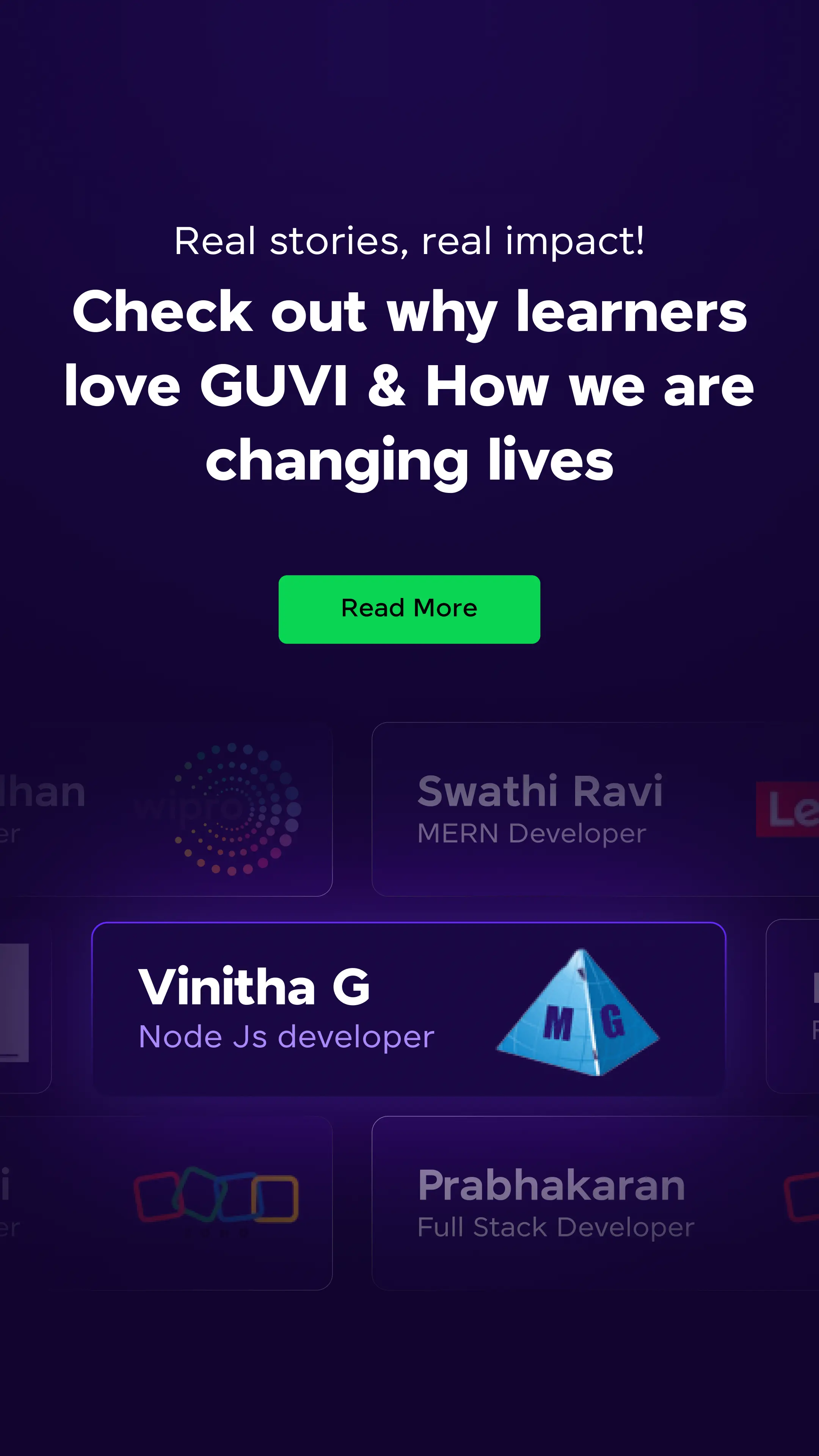












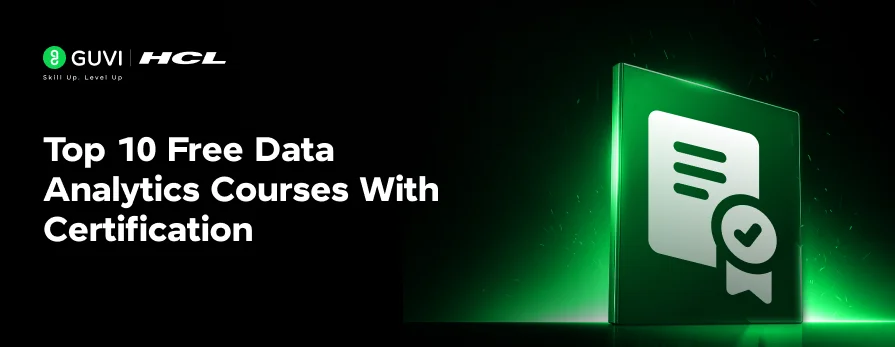

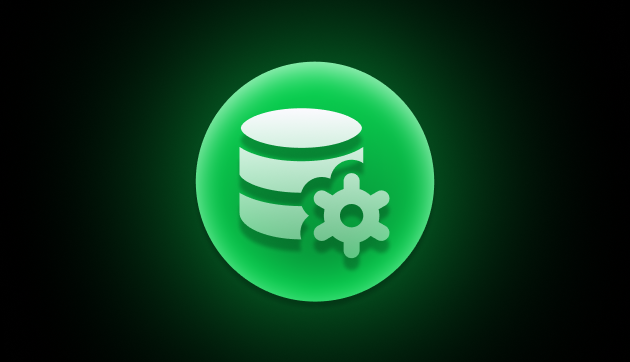

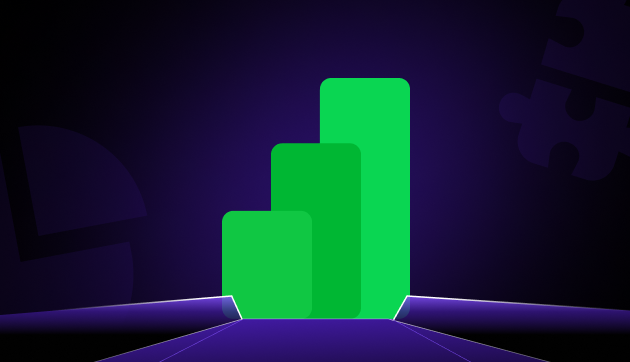
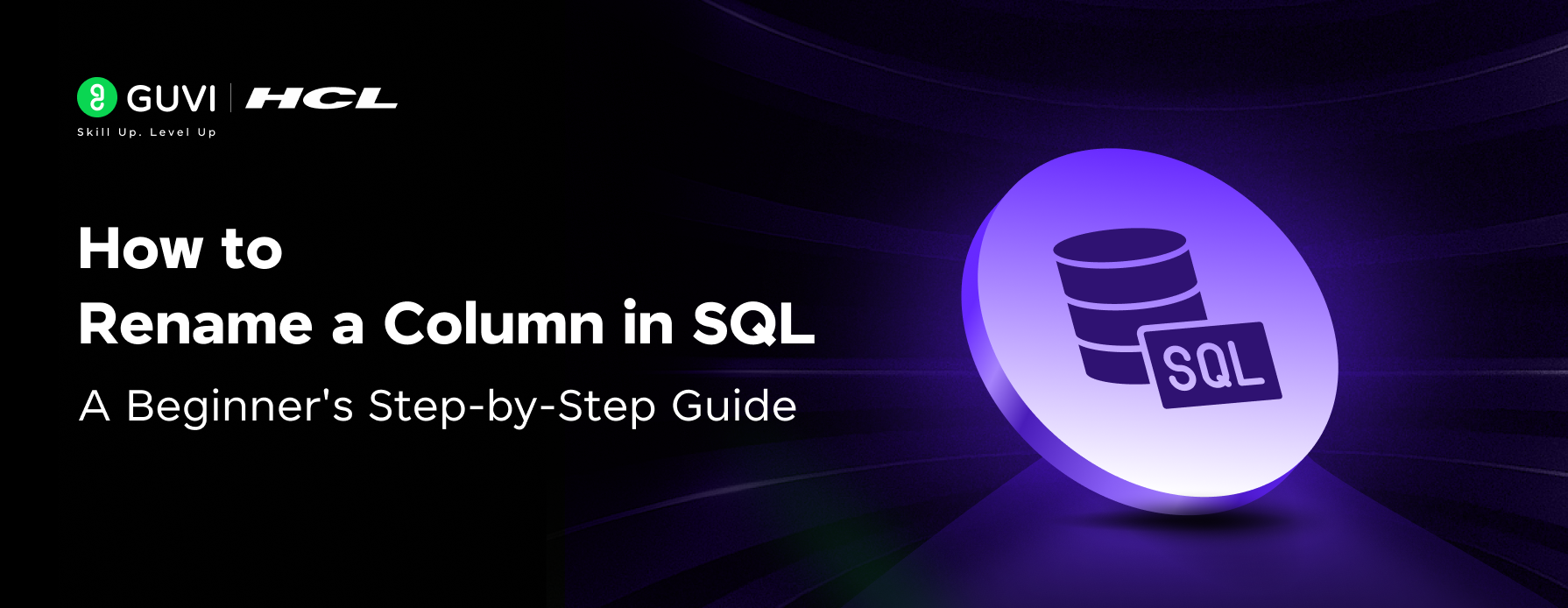
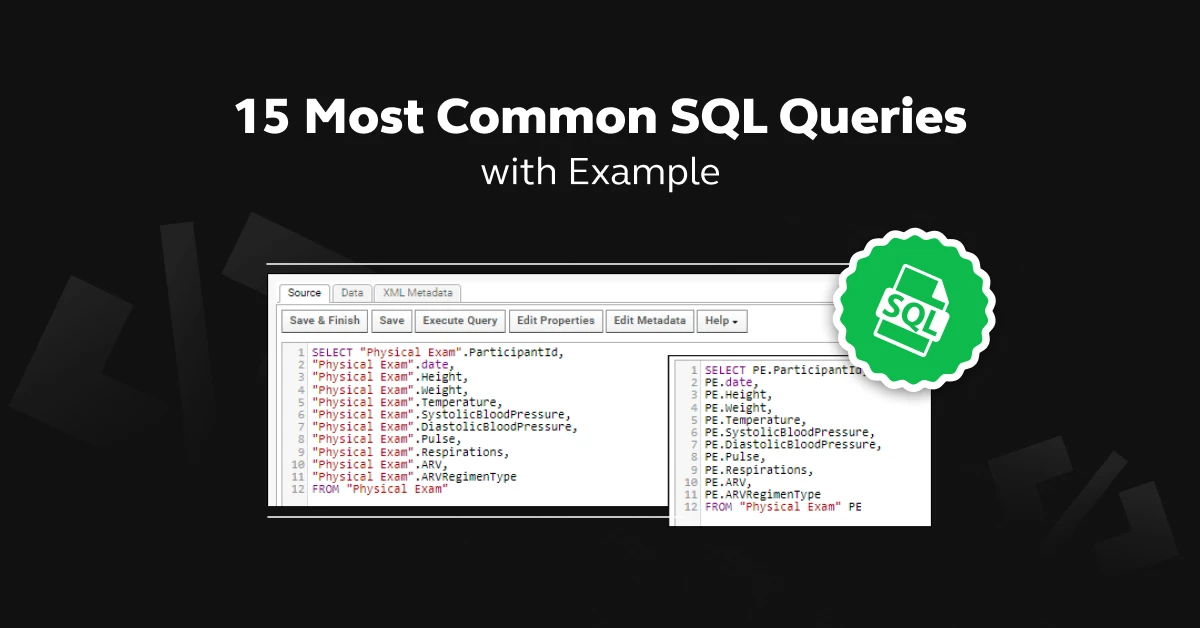
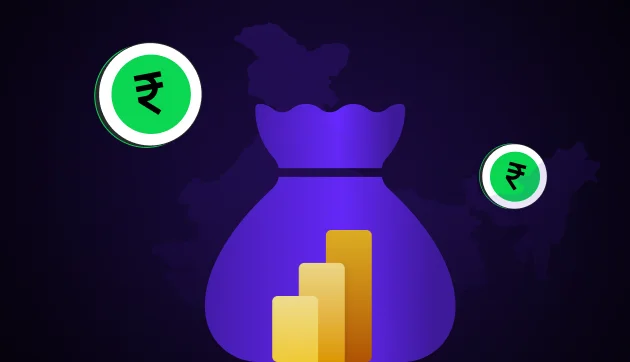





Did you enjoy this article?